( -0625 ) Ever Since Elites Projected Their Fascism Onto A Green Frog Meme... (Dr. Shiva Swarm or Not Swarm? PEPE, Wide Shut, Fourth Kind, Fixing the Clown Circus)
The PEPE-Perpetuated Myth of Silly Elites Deceiving You with Assists by Dr Shiva, Owls, Kubrick (& a Bunch of Smoke About Sports Fixing)
PEPE was denounced as a symbol for the racist, fascist Alt Right by Hillary Clinton on 9-11?
She fainted / passed out shortly thereafter.
Regarding the rigging of Sports, here's a quoted article. (I do not own the rights and am quoting under FU.
"There have been, unfortunately, lies spread around the internet. How surprising? Many social media pages, UberFacts (which has been uber wrong on many occasions) being one of them, has spread the idea that the NFL is a sports entertainment business. And just like the WWE, the NFL can fix games. Flat out false, and here is why. The idea stems from an argumentative misinterpretation of the 2010 Supreme Court case Am. Needle, Inc. v. NFL. Those who want to believe the NFL is rigged thought that the NFL was positioning itself a single entity giving it central control over the unifying interests of the many owners. However, the NFL actually was positioning its spin-off creation NFLP, a corporation that holds all 32 teams’ intellectual property rights, as a single entity. The unifying interests among the owners were to sell merchandise using NFL teams’ intellectual property. Additionally, this argument was rejected by the Supreme Court. Justice Stevens countered that just because the NFL formed a separate corporation called NFLP does not erase the fact that the organizations are separate profit-maximizing entities who do not have fully aligned interests. The law currently does not view the NFL as a single entity. Continuing, from this precedent, central control of the outcomes of NFL games would be a Sherman § 1 anti-trust violation.
But the NFL has an anti-trust exemption, signed by John F. Kennedy. This is another mode of protection some have argued the NFL has, that allows for the fixing of games. Brooklyn Congressman Cellar penned the Sports Broadcasting Act of 1961 after the lobbying efforts of then commissioner Pete Rozelle. This bill allows sports leagues to sign broadcast contracts as a collective, making an exception to anti-trust law. Also included in the bill was a protection for college and high school football. If you have ever wondered why the NFL does not just have games on Fridays and Saturdays, it is because this provision is not active all year round. From the second Friday of September until the second Saturday of December a professional football league is not covered by the Sports Broadcasting Act if they were to broadcast after 6 PM on Fridays or any time on a Saturday. The Sports Broadcasting Act has had a strong influence on the current NFL schedule and on the ability for the NFL to generate revenue. The Act, however, does not extend an anti-trust exemption beyond the purpose of acquiring broadcasting rights for the league. Section four explicitly states that the bill does not change the applicability of federal anti-trust law. So, the NFL would not be able to use their anti-trust exemption to free them of liability if they were to fix games."
"As stated earlier, most conspiracies fail because they are too big, or involve too many moving parts. Knowing this, the scheme must be small or involve very few people. Additionally, those involved must have their self-interests sufficiently aligned with the scheme. Incentives must be strong enough to deter defectors and whistleblowers. Finally, the difficulty in coordinating the sport of football must be considered. It would be too tall of a task to fix a game from start to finish.
With all of the previous factors in mind, the only conceivable way the NFL could fix their games would be for the commissioner, Roger Goodell, to use certain officials to nudge the game in desirable directions. Desirable outcomes would vary based on game but would generally favor: encouraging competitive games; aiding a team making a comeback; and reinforcing the stardom of certain top players. These outcomes lead to a more entertaining and marketable product. The officials only have the power to nudge the game in a direction. Complete fixing of games is out of their control. However, that nudge can have a drastic impact down the final stretch of the game. It is twice as difficult to gain a first down (19.9% success rate) when an offensive penalty is called than when there is not (39%). There must be a carrot on the stick to incentivize an official to influence the game. Perhaps that is in the form of a high-paying position in the broadcast booth upon retirement. The broadcast network executive, in cahoots with Roger Goodell, abides by who he suggests should go into the rules expert analyst. In turn, the broadcast network executive has security in knowing the product will be as entertaining as possible.
"It is Goodell who makes these decisions because there is a lack of oversight written into the Personal Conduct Policy and NFL Constitution. Goodell is beholden to the owners of each team. The owners may vote on the successor of the commissioner by a vote of 18 or two-thirds, whatever is greater. However, the owners will generally not turn on the current commissioner if he is generating profit and does not threaten punishment. Upon this criteria, all owners would be satisfied with Goodell except Dan Snyder and maybe Stephen Ross. Goodell is safe from the owners and will not punish himself for violating the rules. The only other person in a disciplinary role is the Disciplinary Officer, who only gives the suggested punishment for player infractions. Goodell’s only recourse would come from a coalition of disgruntled owners, who he can keep at bay if he keeps the profits rolling in. But, why would Goodell take the risk to fix games? Roger Goodell’s income is tied to the success of the league. With the explosion of broadcasting deals, so too has Goodell’s income. The marketability and entertainment value of the game directly correlates with his take home pay. In 2021, Goodell’s income moved from $35 million to $68 million with goal-based incentives."
"Former referee, Gene Steratore, is one example of prominent referees making the shift into the broadcast booth. So, how would the NFL fix games? Roger Goodell would incentivize certain officials with a promised high-paying job in the broadcast booth upon their retirement to nudge the games in a direction that makes them more entertaining and marketable. It is a small operation that only involves one commissioner, one network executive, and a few officials. All are sufficiently incentivized to stay quiet. Goodell has the prospect at tens of millions more per year. The network executives are guaranteed the best version of the product. And, officials have a secure, high paying retirement position. But most of all, the ambiguity of the NFL rulebook gives plausible deniability to all involved.
Is the NFL rigged? Most likely not. But on the small chance it is, that is how they would do it. "
-
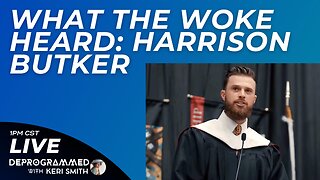 DVR
DVR
Deprogrammed with Keri Smith
3 hours agoWhat the Woke Heard: Harrison Butker's Speech - LIVE Deprogrammed with Keri Smith
11.7K3 -
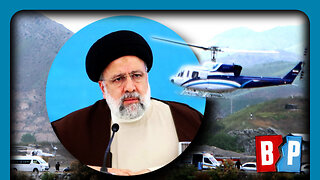 17:29
17:29
Breaking Points
8 hours agoBREAKING: Iran President DEAD In Helicopter Crash, What's Next?
72.4K140 -
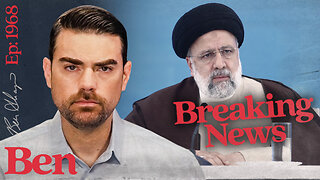 57:54
57:54
Ben Shapiro
4 hours agoEp. 1968 - IRANIAN PRESIDENT DEAD IN HELICOPTER CRASH
55.8K81 -
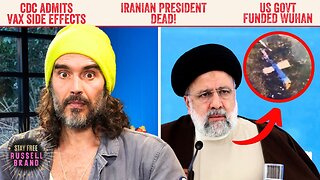 2:40:45
2:40:45
Russell Brand
7 hours agoBREAKING: IRAN PRESIDENT DEAD! Murder or accident? - Stay Free #369
171K314 -
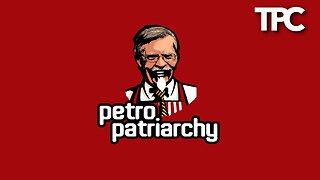 LIVE
LIVE
Tommy's Podcast
3 hours agoE458: CraigTV
393 watching -
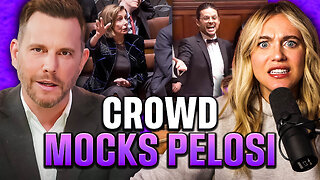 49:37
49:37
TENET Media
4 hours agoWinston Marshall Tricks Nancy Pelosi to Humiliate Herself | Dave Rubin & Isabel Brown
36.5K38 -
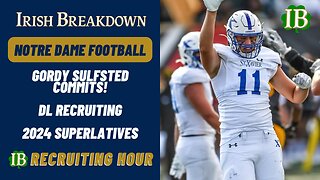 2:54:35
2:54:35
IrishBreakdown
5 hours agoNotre Dame Recruiting Hour: Gordy Sulfsted Commits, DL Recruiting Talk
30.2K -
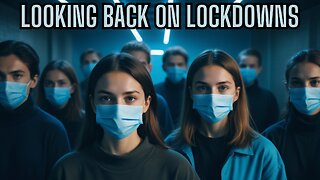 1:44:18
1:44:18
OFFICIAL Jovan Hutton Pulitzer Rumble
5 hours agoLooking Back On Lockdowns and Disruptions In Our Supply Chain and Lives
29.6K9 -
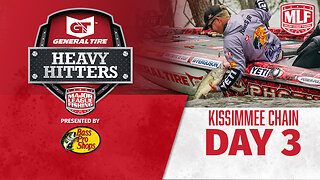
Major League Fishing
4 days agoLIVE Bass Pro Tour, Heavy Hitters, Day 3
45.6K -
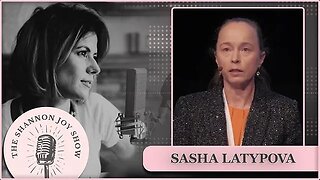 2:57:43
2:57:43
The Shannon Joy Show
10 hours ago🔥LIVE W/Sasha Latypova! Commissioned By Pentagon-COVID Was An Inside Job & The Shots Are Bioweapons
33.5K29